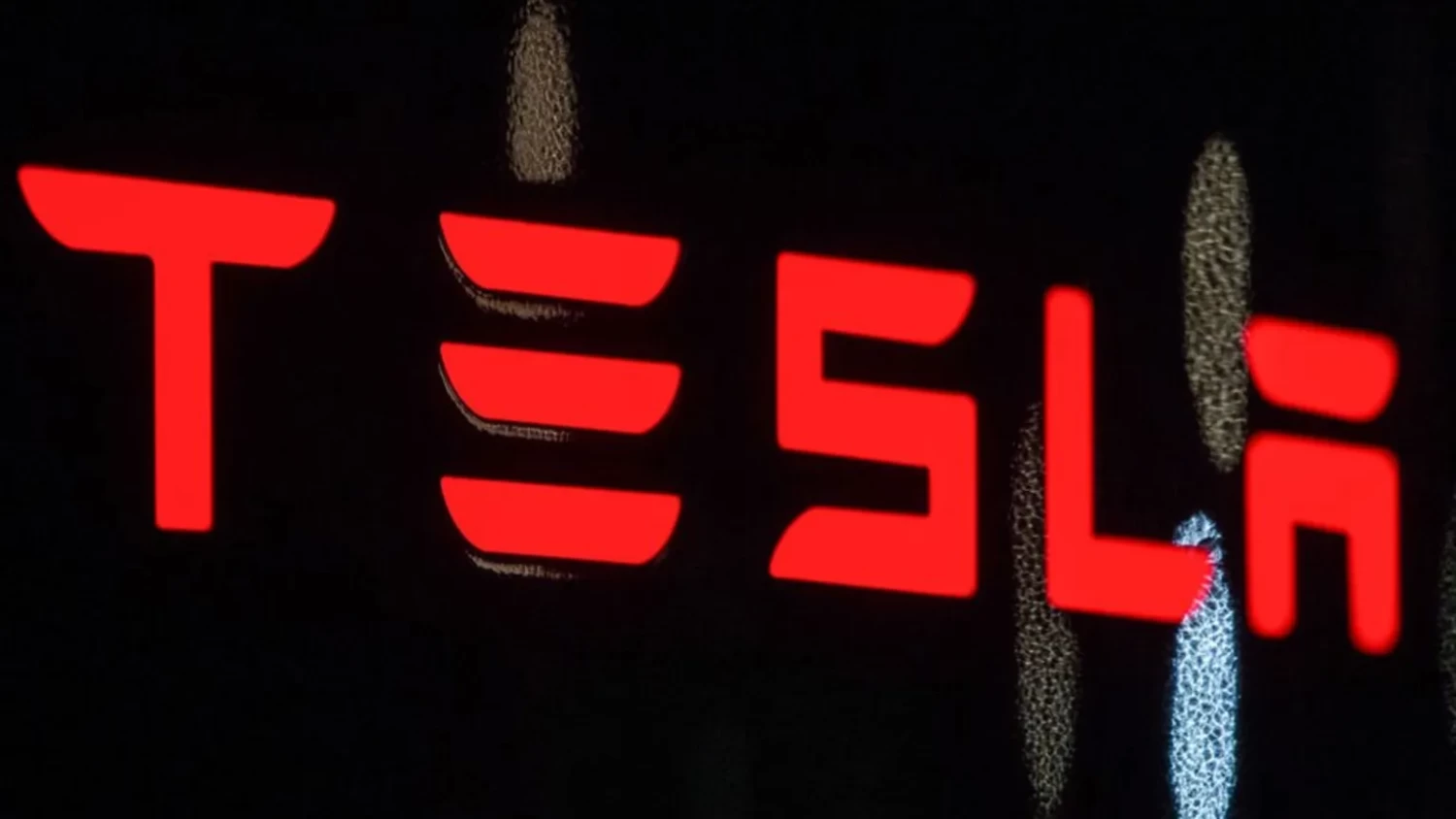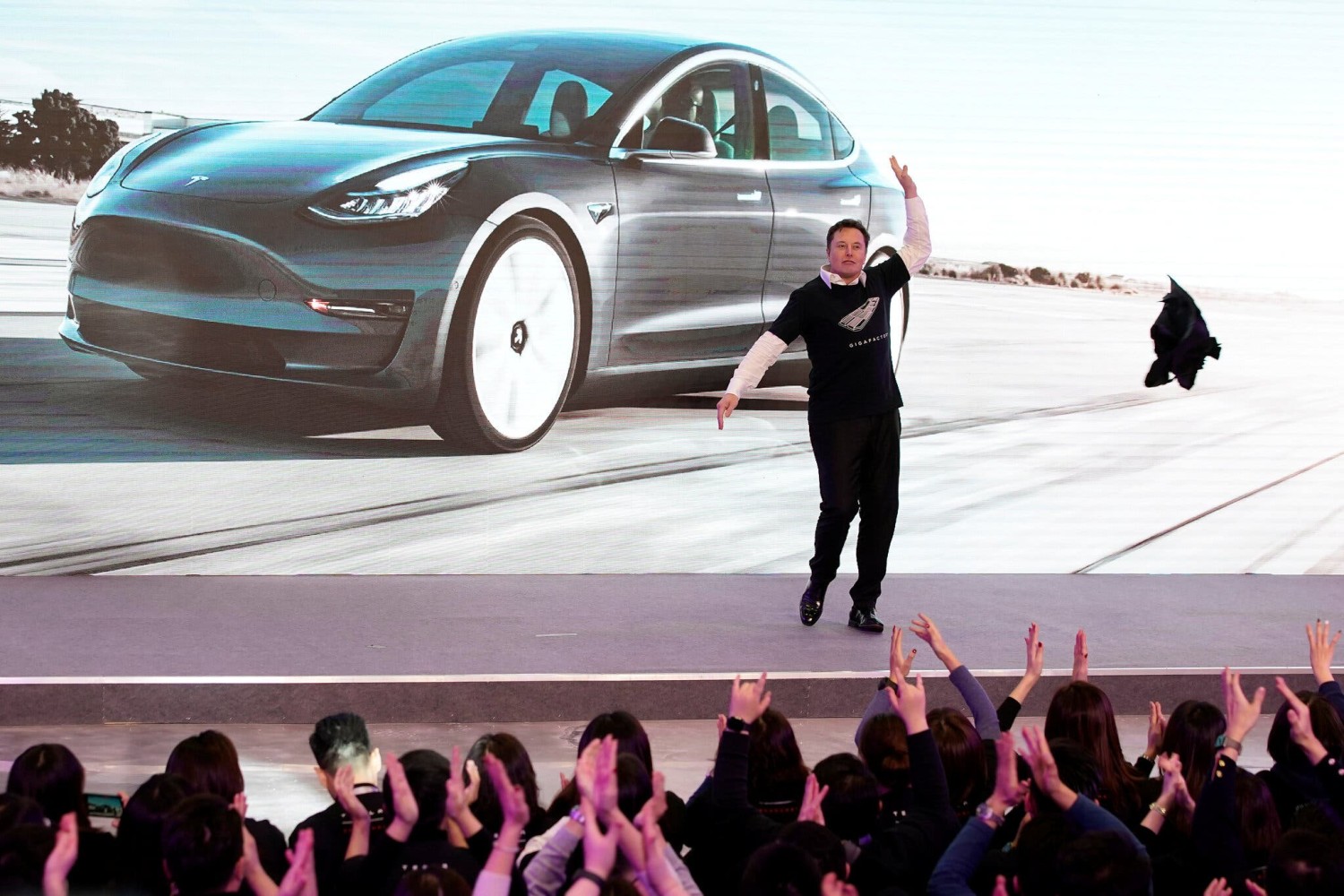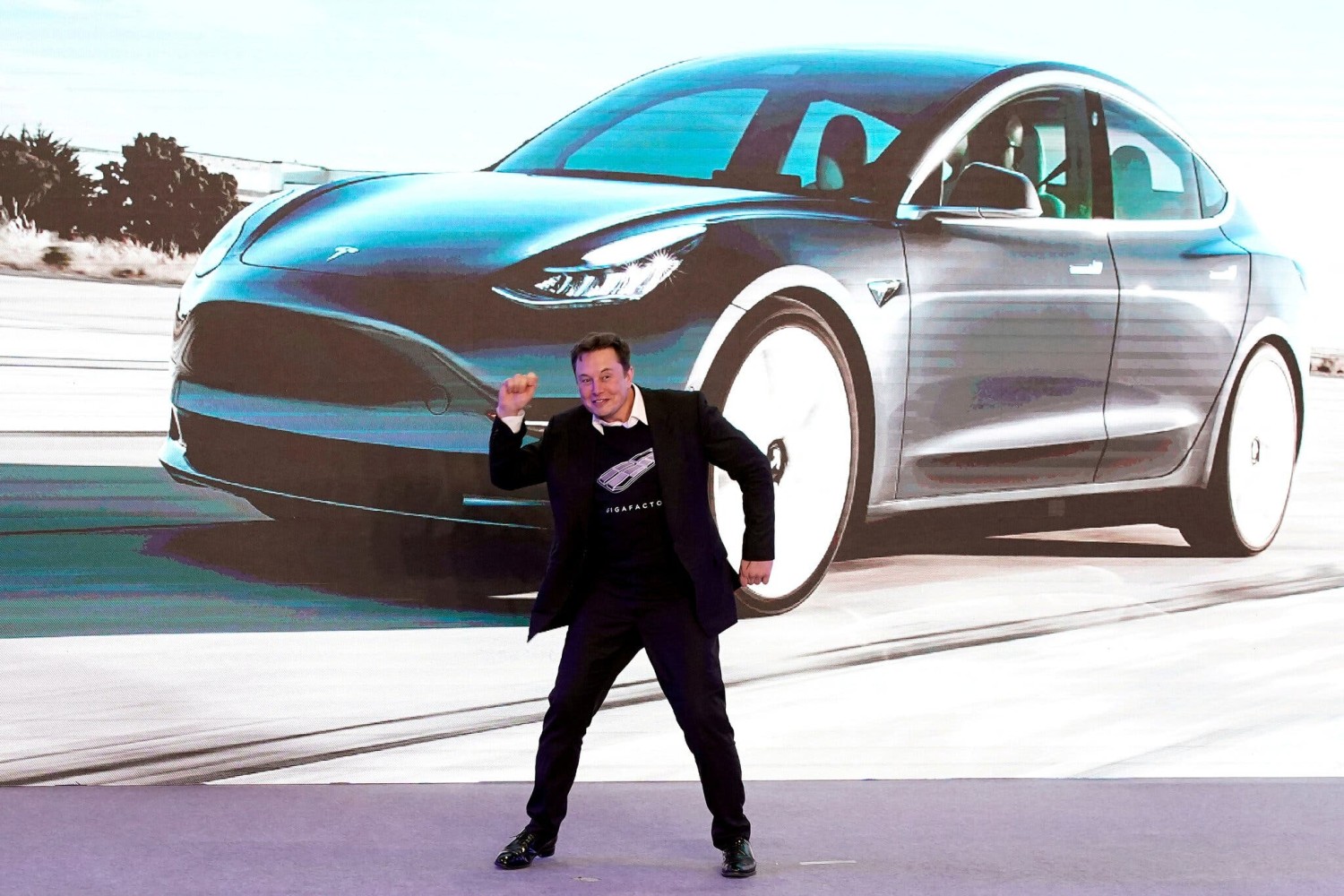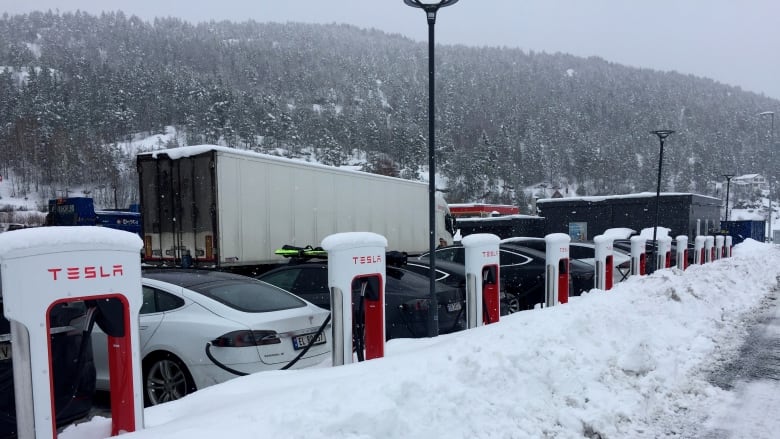This article is more than
5 year oldTesla rocked by ‘apocalyptic’ loss
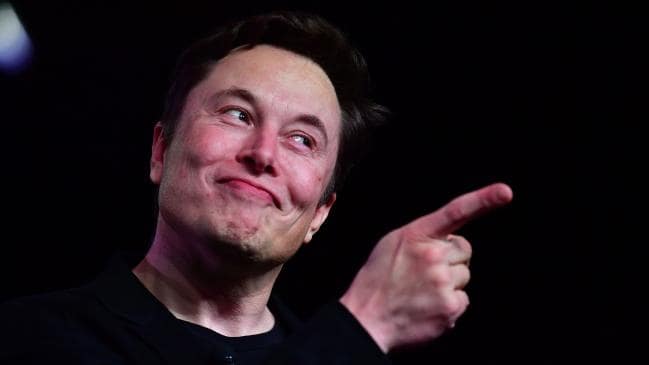
Electric car company Tesla has made the extraordinary claim it will have “a million robo-taxis on the road” within about a year.
It comes as the company’s stocks dropped 8 per cent after reporting the biggest sales drop in its history on Thursday. Tesla lost $1 billlion (US$702 million) in the first quarter of 2019. The loss was described as “apocalyptic”.
In a major presentation to investors on Tuesday, the Californian company announced it expected passengers to travel in taxis with no driver as soon as 2020.
The company said Tesla owners could stay home while their car went out to work as a taxi — making money while they slept.
“I’m confident we will have regulatory approval somewhere literally next year,” chief executive officer Elon Musk said. “Three years from now we will make a car that has no steering wheels or pedals.”

Fully self-driving vehicles hold enormous promise. Not only would they be convenient, they could save lives. Unlike humans they will never get drunk or drowsy and they don’t text when they should be paying attention.
Self-driving cars might communicate with each other, further enhancing safety and even reducing traffic.
Waymo, a subsidiary of Google, is the acknowledged leader in driverless cars. It has a pilot program for autonomous taxis in Phoenix, Arizona, but has not yet taken “safety drivers” out of the drivers’ seat.
The hype over driverless cars has dimmed in the past 12 months as companies realise how complex and dangerous the challenge is. In Phoenix, an Uber self-driving car with a safety driver recently struck and killed a pedestrian. A big question remains over whether driverless cars can become a reality in the near future.
Into this environment springs Tesla, brandishing promises far bolder than any other company dares make. To back its claims of technological progress, Musk spoke about Tesla’s computer chips and its neural nets, and provided a pre-prepared video of a vehicle driving a short course in light traffic and good weather.
It also provided rides to investors after the presentation, but did not permit recording of those rides.
$1 BILLION LOSS
Musk had prepped Wall Street for a first quarter loss but analysts were still stunned by its size: $1 billion (US$702.1 million), among the company’s worst quarters in the past two years.
The net loss was more than double what analysts had predicted as Tesla’s sales slumped 31% for the quarter.
The loss of $4.10 per share left Musk spending much of a conference call explaining how it happened.
But he also extolled his forecast that demand and profit margins will increase as Tesla rolls out updated products and pricing for its three models, and sells more battery storage units. Demand for Tesla’s Models S, X and 3 is returning to normal in the second quarter after the company delivered only 63,000 vehicles from January through March, Musk said.
“My impression right now is that demand is quite solid, quite strong,” he said Wednesday.
He predicted another loss in the second quarter but said Tesla would be back in the black in the third quarter.
The first quarter loss came after two consecutive profitable quarters, the first time that’s happened in Tesla’s 15-year history.
The company said that due to “unforeseen challenges” it was only able to deliver half of the vehicles ordered in the quarter by March 31 as it ramped up deliveries in Europe and China.
Daniel Ives, managing director at Equity Research, had already warned in an email that Wall Street was bracing for “an apocalyptic quarter”, CNN reports.
SHOULD WE BELIEVE ELON MUSK?
Musk has undeniable achievements. He built Tesla up from the small company it was when he joined it. He has won legions of fans, and Tesla is not his only achievement. His rocket company, SpaceX, has serious credibility. (Although his tunnel-digging enterprise, The Boring Company, is utterly half-baked.)
Musk’s achievements look extremely impressive judged against almost any yardstick, with one exception: His promises. The only thing that outstrips his achievements is his self-belief. That means that despite his achievements, it pays to be cautious about his claims.
It is very hard to know when to take Musk seriously. He surfs the boundary of plausibility, talking about creating a rocket-powered hovering car as though he’s not joking, and point to point travel around the globe using rockets.
Musk describes his Twitter feed as “nonsense”, but also registered it with the United States Securities and Exchange Commission as an official source of information about Tesla. He is the CEO of a publicly listed company, and that comes with serious responsibilities.
Ignoring those responsibilities got Musk into big trouble when he announced on Twitter last year that his company would “go private” at a price of $420 a share.
When it was revealed the go-private deal didn’t really exist, Musk was taken to court by the government for fraudulently manipulating Tesla’s stock price. He settled the case without admitting guilt, but is also forbidden from denying he committed fraud.
Later it came out that the share price he announced — $420 — was chosen because it is slang for marijuana.
In short, Musk’s relationship with the truth is about as clear to the rest of us as his relationship with the electronic music producer Grimes.

MISSED PROMISES
Elon Musk built two very impressive businesses by bringing bold promises to reality. He made electric cars cool and he was the first to commercialise the landing and reuse of rockets at SpaceX. The top-level promises have come true. But below that, many of his claims fizzed out.
Here’s a trip down memory lane:
1. In 2012 he promised the company would never need to raise money from new investors again. It has raised billions since.
2. He promised Tesla would make 10,000 Model 3s a week. It averages under 5000.
3. He promised a Tesla would drive itself cross-country in 2017. It didn’t and hasn’t since.
4. He spoke enthusiastically about an “Alien dreadnought” factory but Tesla has had to reduce automation and use more workers at its Fremont factory.
Musk has admitted his promises are sometimes “not on time” but said he gets there in the end. When it comes to self-driving robo-taxis it is fair to wonder if they will be a reality in the next decade. So what led Musk to make this big announcement now?
ALL EYES ON THE STOCK PRICE
Musk claimed it was his goal to accelerate the world’s transition to sustainable energy. There are many possible ways to do that. He chose to run a public company. That means the stock price of the company is always in his sights. He seems desperate to keep it elevated.

Tesla’s stock has performed poorly recently, losing about 30 per cent of its value since a peak of $376 in December last year. That is especially bad news for Musk, who owns a bit over 20 per cent of Tesla, or around $10 billion worth.
Musk has taken out loans from major banks, using his shares as collateral. According to official Tesla documentation, around a third of Musk’s shares — $3.5 billion worth — are pledged against loans for cash. Musk has plenty of appetite for spending cash — he bought up a cluster of five mansions in Bel Air — but also for investing in his other companies, like SpaceX.
If Tesla’s share price falls, Musk could face a margin call. That’s where a bank that loaned cash realises the collateral they hold is now worthless, and demands the borrower provide more shares as collateral, or repay some of the loans.
If Musk has to sell Tesla shares to repay his loans, the share price could fall further, and that could spark further margin calls. It’s a potential downward spiral, although it is unknown just how low the share price can go before a margin call is triggered
Is Musk flush with cash? It is interesting to note that late last year, shortly after a financial irregularity was reported at SpaceX, he took out mortgages against four of those five Bel Air mansions we just mentioned, and another $20 million home he owns. That could be nothing, or it could be a sign that he is financially strained across several businesses.
If he was hoping Monday’s announcement of imminent full self-driving would push the stock price back up and reduce his risk of a margin call he would have been disappointed. On Monday, Tesla’s stock fell 4 per cent.
WHAT’S NEXT?
Overnight, Musk announced a larger-than-expected loss of $702 million, or $4.10 a share over the past financial quarter. The poor result was put down to “disappointing delivery numbers, costs and pricing adjustments”, according to Tech Crunch.
In 2018, Musk promised Tesla would be profitable ever after, but after just two quarters of modest profits, Tesla has slumped back to loss-making. Sales of its more expensive Model S and Model X have fallen sharply with the introduction of the new, cheaper Model 3 but the Model 3 has much lower profit margins.

Falling sales however, are apparently no longer such a big problem at Tesla. It says that as well as letting customers add their own cars to its robot-taxi network, it will build up its own fleet of cars to operate on the network. The company is evidently going all-in on Elon Musk’s vision. That certainly seems courageous.
News.com.au contacted Tesla for comment but had not received a response at time of publication.
Jason Murphy is an economist. He writes the blog Thomas the Think Engine. Continue the conversation @jasemurphy
Keywords
Newer articles
<p>New Delhi says it is “deeply concerned” about the situation in the Middle East, which “threatens peace and security”</p>
Why Israel is risking a dramatic escalation with Iran
Iron Dome, David’s Sling, Arrow: Israel’s air defense against Iran, explained
Israel’s War Leaders Don’t Trust One Another
OJ Simpson to be cremated and no plans to donate brain to science, lawyer says
Bianca Censori stuns in extreme v-neck dress
US helped Israel take down ‘nearly all’ Iranian drones and missiles – Biden
‘Their tactics have changed’: Russia’s bid to blow apart Ukraine’s power grid
Russia's meat grinder soldiers - 50,000 confirmed dead
How Leslie Liao left Netflix’s HR department to become a rising star in stand-up
